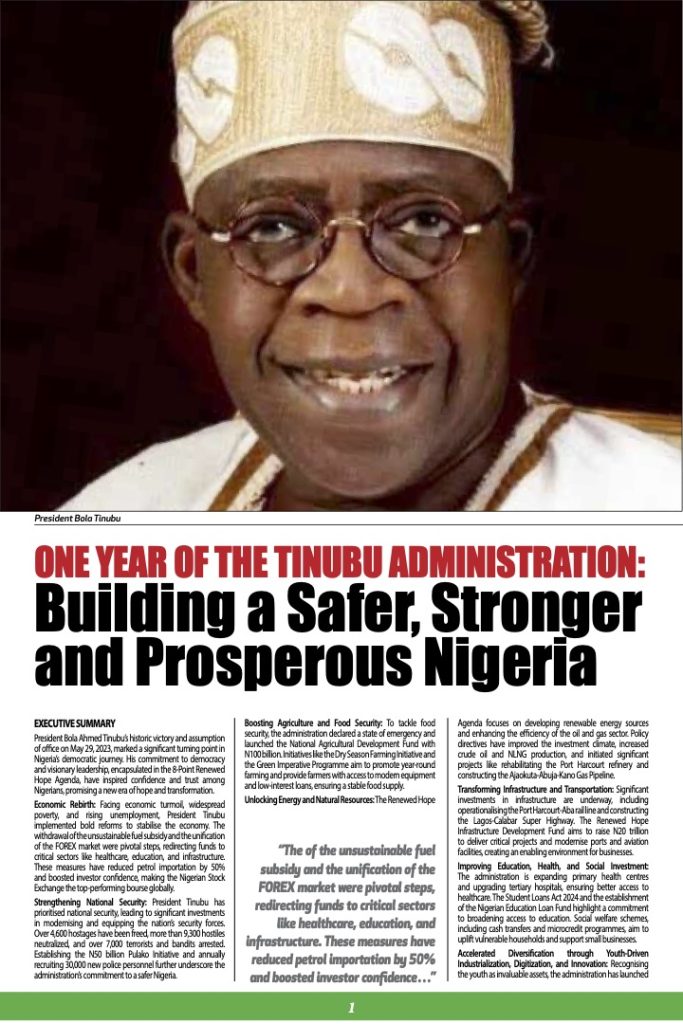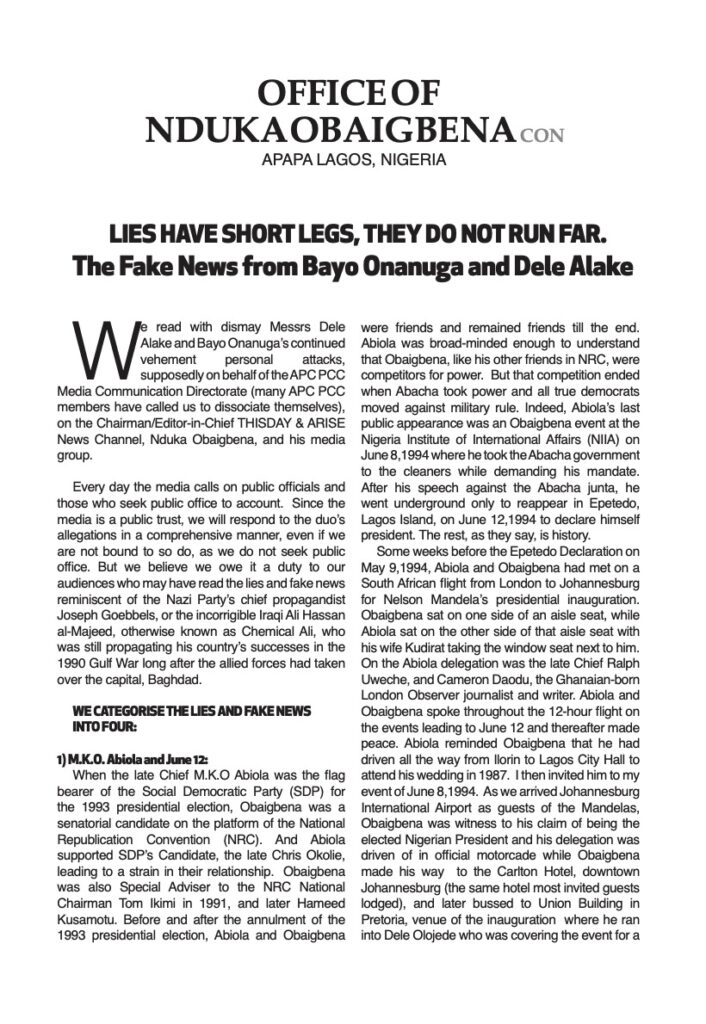Latest Headlines
Breaking the Silence: Addressing the Stereotypes Surrounding Men’s Mental Health

In commemoration of 2024 Men’s Mental Health Awareness Month, themed, ‘Men don’t Talk, We’re Told’, Sunday Ehigiator raises awareness on the dangers of stereotypes and societal expectations of men, which are harmful to men’s mental health, how it worsens by not speaking out, and the importance of collaborative approach in addressing them
June is globally recognised as Men’s Mental Health Month. It is a vital initiative that seeks to raise awareness and promote understanding of mental health issues affecting men.
Despite the progress made in recent years, mental health remains a taboo topic, particularly among men.
Harmful stereotypes and societal expectations continue to perpetuate the stigma surrounding men’s mental health, discouraging many from seeking help.
Men’s Mental Health Month offers a crucial opportunity to challenge harmful stereotypes and promote a culture of understanding.
The Stereotypes
Mental health stereotypes perpetuate harmful barriers to treatment by shaping societal views and encouraging the internalization of damaging behaviours.
Speaking to THISDAY about some dangerous stereotypes men are faced with, Mental Health Professional and Founder of Reuel Consulting Ltd, Mr Toluse Francis noted that “Men, in particular, face four common stereotypes that hinder their mental health care.
“First is the ‘Men Don’t Cry’ syndrome. This stereotype makes emotional expression discouraged in men, leading to unhealthy outlets like anger and violence.
“Secondly is the ‘Men shouldn’t talk about real stuff with friends’ syndrome. Men are socialised to avoid emotional discussions, making it difficult for them to open up about their issues.
“Women often take comfort in friendships when things get difficult. The same idea doesn’t exist for men. There’s a stereotypical scenario in which a girl’s relationship breaks up and she is immediately swarmed by friends offering support. On the other side of the breakup, boys are just supposed to shrug it off and move on.
“As a result, when women spend time together, they’re more likely to bring up topics that deal with emotions and personal issues, while guys are expected to talk about sports and hobbies.
“This stereotype teaches young men that some topics are off-limits, which makes it difficult for them to talk to a professional about their issues when they grow up. Talking about the things that bother them has never been a natural resolution for most men.
“Thirdly is the ‘Tough it Out’ mentality. The ‘tough it out’ mentality prevents men from seeking help, potentially leading to substance abuse and worsening mental health.
“Men are taught at a young age to ‘tough it out’ when they get hurt. When they get older, they’re told to ‘fight back’ or ‘man up’ when they get bullied. This ingrains the belief that if they want to be seen as manly, they won’t ask for help, even when they feel like they need it.
“For men, the consequences are more far-reaching than simply not getting the help they need. When help seems out of reach, people tend to resort to other methods of coping.
“Trying to self-medicate to escape issues caused by mental illness is a potential path to starting to abuse drugs and alcohol, which compounds the issue instead of solving it.
“This also suggests that the actual number of men experiencing mental health problems is far less than what the numbers show. There’s likely an entire population of men hiding their struggles with mental health from public discourse.
“Lastly is the ‘Men Don’t Suffer from Certain Conditions’ syndrome. Men are often marginalised in discussions about mental health conditions like postpartum depression, phobias, and eating disorders, which can affect them as well.
“These stereotypes result in men being less likely to seek mental health care, leading to undiagnosed and untreated conditions. Challenging these stereotypes is crucial to promote inclusive support and encourage men to prioritize their mental wellbeing.”
Dangers of Stereotypes and Stigma
On the dangers of negative stereotypes, Mr. Francis said, “Traditional gender roles often portray men as strong, stoic, and unemotional. These expectations can lead to men feeling ashamed or weak for expressing emotions or struggling with mental health issues.
“The ‘tough guy’ stereotype perpetuates the notion that men must handle problems alone, without showing vulnerability. This stigma can prevent men from opening up about their struggles, fearing judgment or rejection.
“The ‘strong and silent’ archetype is deeply ingrained in our culture, perpetuating harmful ideas about masculinity.
“Men are socialised to prioritise strength, resilience, and emotional control, suppressing emotions and vulnerabilities. This restrictive definition of masculinity limits men’s ability to express themselves and seek help when needed.
“Societal expectations rooted in toxic masculinity and traditional patriarchal systems impose immense pressure on men to embody strength and resilience, even when they have theoretical access to support services.
“Consequently, mental health conditions like anxiety and depression are often allowed to escalate unchecked.
“Men face significant barriers when seeking help for specific issues, and it is often more socially acceptable for them to acknowledge struggles with substance abuse and enter rehabilitation programs than to pursue mental health treatment.
“Even when mental health resources are available, the pervasive stigma and discrimination surrounding help-seeking behaviours discourage men from accessing these services, exacerbating their mental health struggles.
“This highlights the need to address and challenge harmful gender stereotypes and promote inclusive, supportive environments that encourage men to prioritise their mental wellbeing.”
Impact on Mental Health
The perpetuation of harmful stereotypes has a profound impact on mental health, leading to devastating consequences for men, who are less likely to seek professional help for mental health issues, more likely to engage in substance abuse and self-destructive behaviours, and are at a higher risk of suicide, with men accounting for a staggering 75 per cent of all suicide deaths.
This results in men’s mental health issues often going undiagnosed and untreated, leading to severe and long-lasting consequences, such as exacerbated symptoms, strained relationships, and reduced quality of life.
The pervasive stigma surrounding mental health forces men to suffer in silence, preventing them from seeking the help they need and deserve, and perpetuating a culture of silence and shame.
Furthermore, these stereotypes reinforce harmful gender roles, limiting men’s ability to express emotions and vulnerabilities, and perpetuating a culture of toxic masculinity.
Moreover, the lack of representation and visibility of men’s mental health issues in media and everyday conversations perpetuates the stigma, making it harder for men to open up and seek help.
Therefore, it is essential to challenge and dismantle these stereotypes, promote inclusive and diverse representation, and create a culture where men feel comfortable seeking help and discussing their mental health without fear of judgment or rejection; by doing so, we can work towards a society that values mental health, promotes inclusivity, and supports men in their journey towards healing and recovery.
Breaking the Silence
Breaking the silence around men’s mental health requires a comprehensive and inclusive approach that involves encouraging open conversations and emotional expression, promoting positive representations of men’s mental health in media, supporting mental health education and awareness initiatives, fostering a culture of understanding and empathy.
It also involves the provision of safe spaces for men to share their struggles, validate their emotions, and offer support without judgment, as well as engaging family and friends, healthcare providers, and the wider community in this effort to create a society that values mental health, promotes inclusivity, and supports men in their journey towards healing and recovery, free from the constraints of harmful gender stereotypes and stigma.
Rather, empower them to take control of their mental well-being, seek help when needed, and live healthier and more fulfilling lives, which require a fundamental shift in how we perceive and address mental health issues.
Society at large, including governments at all levels, the World Health Organisation (WHO), and the United Nations (UN), must also recognise the unique challenges and experiences of men, and work together to dismantle the cultural and societal barriers that prevent them from seeking help, and instead, creating a culture that encourages vulnerability, resilience, and hope.
They must also create an ecosystem that supports men in their pursuit of mental wellness, and ultimately, improves the lives of individuals, families, and communities alike.
Together, we can create a society where men feel empowered to seek help, without fear of judgment or rejection. Let us work towards a future where mental health is prioritised, and men can thrive without the burden of harmful stereotypes.
By encouraging open conversations and emotional expression, promoting positive representations of men’s mental health in media, supporting mental health education and awareness initiatives, and fostering a culture of understanding and empathy, we can break the silence surrounding men’s mental health.
UN Accused of Systemic Gender Bias against Men
In a scathing letter, Men’s Mental Health Advocate, and Executive Director, of Life After Abuse Foundation, Halima Layeni slammed the United Nations (UN) for its alleged gender bias against men, citing the lack of recognition or celebration of men’s contributions to Father’s Day.
Despite the UN’s commitment to gender equality, Layeni argues that the organization has consistently ignored days dedicated to celebrating men, perpetuating harmful gender stereotypes and discrimination.
The letter highlights the numerous days dedicated to women, including International Women’s Day and Women’s History Month, but notes that there are no UN-recognized days dedicated to men or boys.
Layeni demands accountability from the UN, calling for recognition of men’s contributions and the value of fathers, positive male role models, and the sacrifices men make for their families and communities.
The letter warns that the UN’s failure to act will perpetuate a world where men are marginalized, boys are disenfranchised, and families suffer, undermining the organization’s credibility and legitimacy.
According to her, “This omission is not only a slight against men but also has far-reaching consequences for society. It perpetuates a narrative that men are not equally valuable or important, contributing to systemic gender bias and discrimination.
“It reinforces harmful gender stereotypes, limiting men’s ability to express emotions, seek help, and pursue non-traditional roles. It also neglects the unique challenges men face, such as higher rates of suicide, homelessness, and incarceration.
“I demand accountability from the United Nations. It is time for you to acknowledge the importance of celebrating men and their contributions. It is time for you to recognize the value of fathers, the impact of positive male role models, and the sacrifices men make for their families and communities.
“Your failure to act will have far-reaching consequences. It will perpetuate a world where men are marginalized, boys are disenfranchised, and families suffer. It will undermine your credibility and legitimacy. It will show the world that your commitments to gender equality are nothing more than empty promises.
“I expect a response and a plan of action to address this issue. The world is watching, and men deserve better. It’s time for the United Nations to practice what it preaches and truly champion gender equality for all.”

















